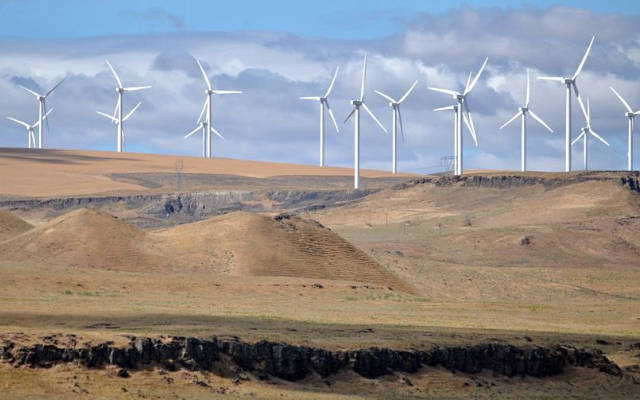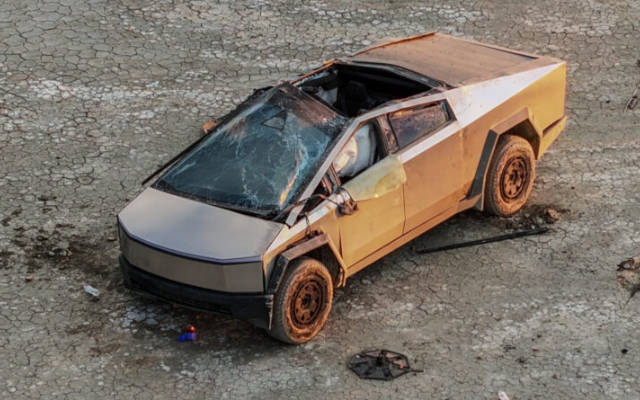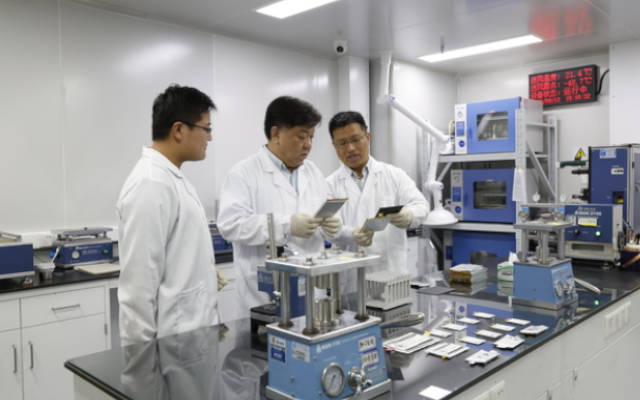 EDITOR'S PICK
EDITOR'S PICK
We Could Get Most Metals For Clean Energy Without Opening New Mines
21 Aug 2025 | Synopsis
 Recycling existing materials - such as mine waste, used electronics, and batteries - can supply most of the metals needed for clean-energy technologies, potentially avoiding new mining operations and reducing environmental and social impacts. Leveraging innovations in circular economy strategies and policy shifts toward reuse offers a sustainable alternative to traditional mining.
Recycling existing materials - such as mine waste, used electronics, and batteries - can supply most of the metals needed for clean-energy technologies, potentially avoiding new mining operations and reducing environmental and social impacts. Leveraging innovations in circular economy strategies and policy shifts toward reuse offers a sustainable alternative to traditional mining.Africa: The Green Transition's Surprising New Home
21 Aug 2025 | Synopsis
 Africa emerges as unexpected renewable energy leader, "leapfrogging" fossil fuels with 60% of world's best solar resources. Kenya targets 100% renewables by 2030, Ethiopia builds largest hydro project. Chinese clean tech exports up 153%. By 2030, renewables will account for 80%+ of new capacity. Economic necessity drives energy independence through domestic clean sources.
Africa emerges as unexpected renewable energy leader, "leapfrogging" fossil fuels with 60% of world's best solar resources. Kenya targets 100% renewables by 2030, Ethiopia builds largest hydro project. Chinese clean tech exports up 153%. By 2030, renewables will account for 80%+ of new capacity. Economic necessity drives energy independence through domestic clean sources.Cybertruck Insurance Dilemma: Tesla's Challenge Ahead
21 Aug 2025 | Synopsis
 Tesla's Cybertruck faces an insurance crisis as major providers like GEICO and Hanover rescind coverage due to high repair costs, limited production data, and underwriting challenges. Owners report cancellations and steep premiums, while Tesla's own insurance offers partial relief in select states. The issue threatens future sales and highlights the gap between bold design and real-world support, leaving buyers uncertain and Tesla under pressure to respond.
Tesla's Cybertruck faces an insurance crisis as major providers like GEICO and Hanover rescind coverage due to high repair costs, limited production data, and underwriting challenges. Owners report cancellations and steep premiums, while Tesla's own insurance offers partial relief in select states. The issue threatens future sales and highlights the gap between bold design and real-world support, leaving buyers uncertain and Tesla under pressure to respond.The Lithium Wars: EnergyX, Tesla, and the Race to Reinvent Battery Supply
20 Aug 2025 | Synopsis
 EnergyX and Tesla are racing to reshape lithium supply chains. Energyx's modular LiTAS™'s system extracts lithium from brine with high efficiency, while Tesla builds a $1B acid-free refinery in Texas. Smackover, AR is EnergyX's likely launch site, offering infrastructure and proximity to EV markets. Meanwhile, sodium-ion batteries emerge as a low-cost alternative, potentially disrupting lithium demand but not replacing it. The future of batteries is diversified, fast, and fiercely competitive.
EnergyX and Tesla are racing to reshape lithium supply chains. Energyx's modular LiTAS™'s system extracts lithium from brine with high efficiency, while Tesla builds a $1B acid-free refinery in Texas. Smackover, AR is EnergyX's likely launch site, offering infrastructure and proximity to EV markets. Meanwhile, sodium-ion batteries emerge as a low-cost alternative, potentially disrupting lithium demand but not replacing it. The future of batteries is diversified, fast, and fiercely competitive.China's 600 Wh/kg Lithium-Metal Battery Breakthrough: Hype or Real Progress?
19 Aug 2025 | Synopsis
 Chinese researchers report lithium-metal pouch cells reaching 600 Wh/kg - nearly double today's EV batteries. Published in Nature, the work uses a novel electrolyte and shows promising density but only ~100 cycles, far short of EV needs. Scaling, safety, and cost remain unproven. While credible science, it's early-stage. Current leaders like CATL, BYD, Amprius, and SES offer lower but durable densities; no one is yet close to 600 Wh/kg for real EVs.
Chinese researchers report lithium-metal pouch cells reaching 600 Wh/kg - nearly double today's EV batteries. Published in Nature, the work uses a novel electrolyte and shows promising density but only ~100 cycles, far short of EV needs. Scaling, safety, and cost remain unproven. While credible science, it's early-stage. Current leaders like CATL, BYD, Amprius, and SES offer lower but durable densities; no one is yet close to 600 Wh/kg for real EVs.
 EVWorld Exclusive
EVWorld Exclusive
Unlocking Heat's Hidden Potential: How a Nanoscale Discovery Could Transform Everyday Tech
24 Oct 2025 |  A recent nanoscale physics breakthrough reveals heat can transfer across tiny gaps far more efficiently than expected - up to 100 times greater than classical predictions. This could revolutionize cooling and energy systems in electronics, EVs, and smart appliances. While engineering challenges remain, early applications may emerge within 3-5 years, with broader consumer adoption possible in the next decade. The future of heat management may be silent, solid-state, and radically efficient.
A recent nanoscale physics breakthrough reveals heat can transfer across tiny gaps far more efficiently than expected - up to 100 times greater than classical predictions. This could revolutionize cooling and energy systems in electronics, EVs, and smart appliances. While engineering challenges remain, early applications may emerge within 3-5 years, with broader consumer adoption possible in the next decade. The future of heat management may be silent, solid-state, and radically efficient.
Turning the Energy Crunch into a Smart Grid Revolution
24 Oct 2025 |  America's energy crunch is not about supply - it's about coordination. Virtual power plants and vehicle-to-grid systems offer a scalable, software-driven solution to rising demand from AI, EVs, and climate volatility. By turning homes, vehicles, and businesses into active grid assets, and aligning policy with technology, the U.S. can build a smarter, more resilient energy future without building more power plants. The tools exist - now it's time to connect them.
America's energy crunch is not about supply - it's about coordination. Virtual power plants and vehicle-to-grid systems offer a scalable, software-driven solution to rising demand from AI, EVs, and climate volatility. By turning homes, vehicles, and businesses into active grid assets, and aligning policy with technology, the U.S. can build a smarter, more resilient energy future without building more power plants. The tools exist - now it's time to connect them.
Auto Retail in 2025: Bridging the Trust Gap Between Dealers and Buyers
24 Oct 2025 |  The 2025 Urban Science and Harris Poll report reveals a growing disconnect between dealers and buyers. While dealers embrace EVs, AI, and digital tools, many buyers remain cautious - especially about full electrification and online-only retail. Brand loyalty is weakening, and policy clarity is key to adoption. The future of auto retail depends on bridging trust, flexibility, and infrastructure gaps.
The 2025 Urban Science and Harris Poll report reveals a growing disconnect between dealers and buyers. While dealers embrace EVs, AI, and digital tools, many buyers remain cautious - especially about full electrification and online-only retail. Brand loyalty is weakening, and policy clarity is key to adoption. The future of auto retail depends on bridging trust, flexibility, and infrastructure gaps.
Electric Icons in the Making: Audi Concept C vs. Chevrolet Corvette EV
23 Oct 2025 |  Audi's Concept C previews a refined electric GT built on the mature PPE platform, likely arriving by 2026. Chevrolet's Corvette EV promises supercar performance but faces packaging and thermal challenges. Audi is closer to production; Corvette remains in early development. Both reflect divergent strategies in electrifying legacy sports cars, with Audi emphasizing platform maturity and Chevrolet pursuing brand continuity through engineering innovation.
Audi's Concept C previews a refined electric GT built on the mature PPE platform, likely arriving by 2026. Chevrolet's Corvette EV promises supercar performance but faces packaging and thermal challenges. Audi is closer to production; Corvette remains in early development. Both reflect divergent strategies in electrifying legacy sports cars, with Audi emphasizing platform maturity and Chevrolet pursuing brand continuity through engineering innovation.
Electrification Is Not an Oversimplification
23 Oct 2025 |  Despite critiques that the quest for global electrification is "simplistic", the transition is strategic and necessary. Grid upgrades, battery innovation, and tailored policies make electrification viable. Sodium-ion batteries and recycling reduce material risk. Compared to fossil fuels, electrification offers cleaner, safer, and more resilient systems. Complexity demands better design - not delay.
Despite critiques that the quest for global electrification is "simplistic", the transition is strategic and necessary. Grid upgrades, battery innovation, and tailored policies make electrification viable. Sodium-ion batteries and recycling reduce material risk. Compared to fossil fuels, electrification offers cleaner, safer, and more resilient systems. Complexity demands better design - not delay.
SEARCH RSSTREAM
 65 New Postings In Past 24 Hours
65 New Postings In Past 24 Hours
Category:mobility
Region:AsiaPacific
Date:24 Oct 2025
Category:mobility
Region:AsiaPacific
Date:24 Oct 2025
Category:mobility
Region:AsiaPacific
Date:24 Oct 2025
Category:finance
Region:NoAmerica
Date:24 Oct 2025
Category:finance
Region:AsiaPacific
Date:24 Oct 2025
Category:mobility
Region:AsiaPacific
Date:24 Oct 2025
Category:energy
Region:IndoAsia
Date:24 Oct 2025
Category:mobility
Region:IndoAsia
Date:24 Oct 2025
Category:review
Region:AustralPacific
Date:24 Oct 2025
Category:mobility
Region:Europe
Date:24 Oct 2025
Category:mobility
Region:NoAmerica
Date:24 Oct 2025
Category:energy
Region:AsiaPacific
Date:24 Oct 2025
Category:energy
Region:AsiaPacific
Date:24 Oct 2025
Category:policy
Region:Europe
Date:24 Oct 2025
Category:mobility
Region:AsiaPacific
Date:24 Oct 2025
Category:mobility
Region:NoAmerica
Date:24 Oct 2025
Category:environment
Region:Global
Date:24 Oct 2025
Category:policy
Region:Europe
Date:24 Oct 2025
Category:mobility
Region:NoAmerica
Date:24 Oct 2025
Category:environment
Region:Global
Date:24 Oct 2025
